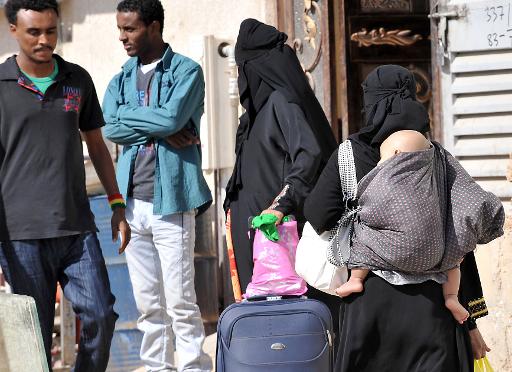
Riyadh, Nov 12: Nearly 17,000 illegal foreigners, including women and children, have surrendered to Riyadh police until Monday evening.
Riyadh police spokesman Brig. Gen. Nasser bin Saeed Al-Qahtani said: “Arrangements will be made to deport them immediately after going through their documents.”
On Saturday, the police asked violators to surrender to the authorities to facilitate their deportation to their respective countries.
Following clashes in Manfouha district on Saturday, Riyadh police asked illegal expatriates to report at a specified point for deportation to their home countries.
The police set up an asylum center for illegals at the intersection of the King Abdul Aziz Road with Riyadh Ring Road. Luxury coaches were provided by the police in Manfouha to ferry the asylum-seekers to the deportation center.
Violators, mostly Ethiopians, surrendered with their families at the center.
During the police raid in Riyadh on Saturday, a major scuffle erupted which resulted in the death of three people, including a Saudi national, and injuries to 68 people, including 28 Saudis. Around 50 people who were admitted to the Al-Iman and Prince Salman Hospitals were discharged on Sunday. During the encounter, the police arrested 561 residents.
During the clashes, the illegal residents pelted residents and citizens with stones and damaged 104 cars and ransacked shops in the neighborhood.
Before the end of the amnesty period, the government had specifically warned illegal expatriates of a SR100,000 fine and a jail term of two years. Illegal residents were given seven months to rectify their employment and residency status in the Kingdom.
Thousands of immigrants have been deported since Nov. 3, according to local media.





Comments
Add new comment